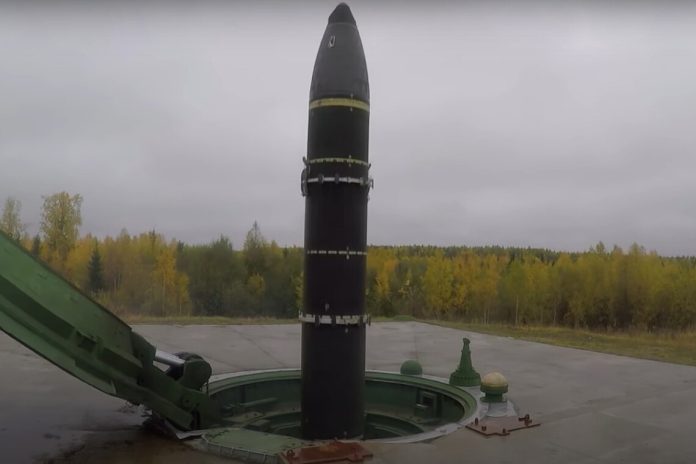Two American researchers, Decker Evelet and Jeffrey Lewis, stated that they identified the probable place of deployment of a new Russian winged rocket 9m370 "Petrel" known in the West as SkyFall. This nuclear -free rocket, which President Vladimir Putin called "invincible" has attracted considerable attention due to its potential threats.
According to Reuters , the researchers made this discovery by analyzing the pictures received on July 26 by Planet Labs. According to them, the potential place for baseing the new rocket is a construction object located near a nuclear warhead storage known as Vologd-20 and Chebsar. This object is located approximately 475 km north of Moscow.
The Evelet noted that the object consists of nine constructed horizontal launchers, which are grouped into three sections and surrounded by high berms. Such Berma is designed to protect against attacks or prevent a chain reaction during rocket detonation. According to the Evelet, these designs indicate that the object is prepared for a large stationary rocket system, and the only such system that Russia is now developed is SkyFall.
Despite Russia's ambitions on these weapons, Reuters experts emphasize that SkyFall missile is unlikely to add new opportunities to the existing Nuclear Arsenal of Moscow. Moreover, the nuclear power plant can lead to radiation emissions during flight, and increases the risk of accidents that can cause radioactive infection of the surrounding regions.
Thomas Cantryman, a former US Department of State, described SkyFall as a "unique stupid weapon system", calling it "flying Chernobyl", which is more threatened by Russia itself than other countries.
In March 2018, Vladimir Putin introduced the "brownish" rocket, calling it a low -flying, virtually unlimited range and unpredictable flight trajectory, which makes it "invulnerable" for present and future defense. However, experts call into question the efficiency of these weapons, emphasizing that its permeable speed makes the rocket noticeable for modern air defense systems, and a flight range of about 23,000 km is not a critical advantage.
Against the backdrop of these events, new issues are raised about Russia's future nuclear strategy. According to recent statements, Moscow plans to amend its doctrine of nuclear weapons, motivating it allegedly "escalation actions of the West" in the war in Ukraine. Although Putin claims that he does not need to use nuclear weapons in a conflict in Ukraine, he does not exclude such an opportunity in the future.


